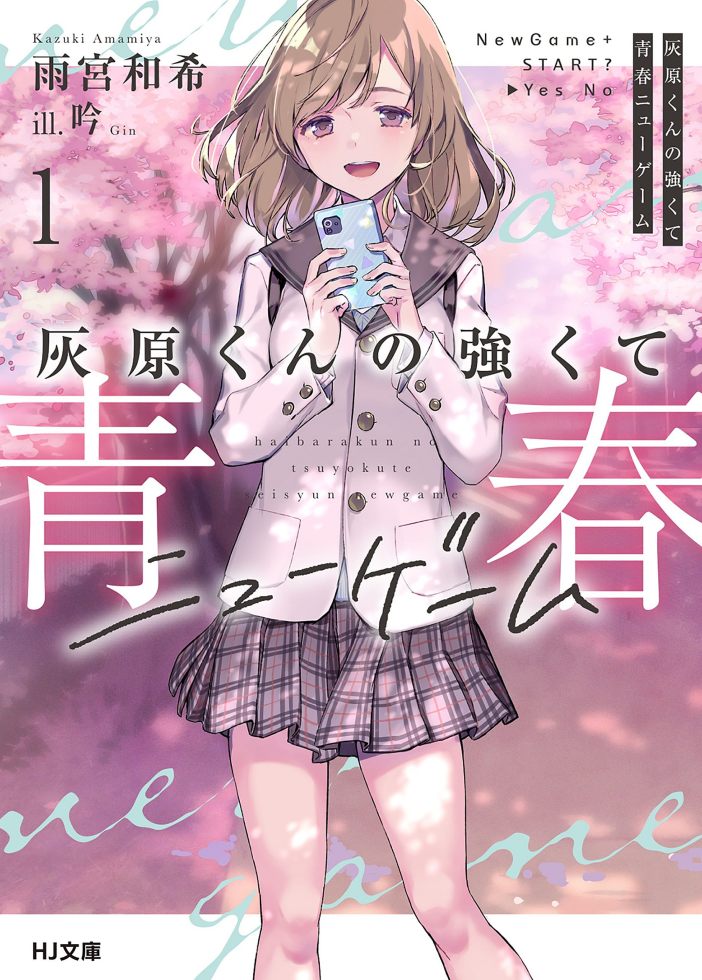Tags: Action, Adventure, Fantasy, Comedy, Romance, Villainess
Sub-Tags: Reincarnation, Time Loop, Otome

Synopsis:
Alphina is falsely accused of plotting to assassinate Saint Debonaire. Time rewinds every time she’s executed for a crime she didn’t commit, but with the cruel Saint Debonaire against her, the same fate awaits Alphina ninety-nine times in a row: death by decapitation. But something different happens the hundredth time around. Just as Alphina is preparing herself for yet another execution, she discovers that she can hear people’s true feelings—and that everyone secretly loves her! Can Alphina take advantage of her newfound ability and sidestep her fate at the guillotine? (Source: J-Novel Club)
Alphina and the Inner Voice Issue!
Loop No. 100
An endless cycle of death. For Alphina, looping around the same set of events culminating in her death has become second nature. Forgoing the psychological trauma, she’s come to accept her fate and inevitable tragedy until the 100th loop changes things.
The hundredth loop has given Alphina something to fight back against the injustice – a heap load of magical power and the ability to hear everyone’s inner voice. As it turns out, she’s been misreading the situation the whole time. With the ability to hear the inner voices of others, she finds out that not only does everyone love her, but they’ve come under the control of the saint’s evil, ancient magic!
Inner voices are a great information source for Alphina and, more often than not, a source of comedy for the reader. Other than the saint’s voice, most of the voices Alphina hears profess their undying affection for her. Of particular note are the inner voices of Alphina’s former fiancé, Prince Lionett, and the philandering prince, Avenlock. Whilst some interesting moments include deciphering the difference between public Lionett and his lovey-dovey private inner thoughts, Avenlock has the most unique voice in the series. All of his thoughts towards Alphina are done through the medium of song. It is clear that the translators at JNC had fun with these parts.
A World Without Alphina
Alphina’s newly found strong magic powers are the key to stopping the saint’s dastardly deeds. Unfortunately, stopping her requires the world to carry on without Alphina – making everyone believe in her death is what Alphina believes is best.
Whilst Alphina is living the slow life as Alph, her death has caused a chain of unfortunate events. These unfortunate events are a strong point in the series, given that they showcase decisions have consequences within the world. Without Alphina to smooth things over, the people who loved her’s actions can no longer be controlled.
Rival princes, Lionett and Avenlock’s actions have put their respective countries on the brink of war. Furthermore, Lionett’s advisor and Alphina’s brother, Carl, have joined a terrorist group hoping to kill the saint.
Unable to stand back for long, she reveals her identity once more. Teaming up with the princes and her brother, she’s returned to settle disagreements and kill the saint for good this time. Although, now that she’s revealed herself, it’ll take a hilarious amount of effort for her to avoid the obsessive advances of Lionett and Avenlock.
Overall, 100th Time’s the Charm is another strong entry within the J-Novel Heart label. Sometimes gut-bustingly hilarious, sometimes the right amount of serious, there isn’t a moment where this series fails to entertain and engage.

The 100th Time’s the Charm Vol. 1
My Rating: 8.5/10
I hope you enjoyed my review and would love to see what you thought of the volume in the comments! If you like what I do and want to see more, consider supporting me by buying me a coffee on Ko-Fi.
You can read the first volume of this series digitally on the J-Novel Club website.

